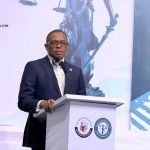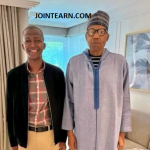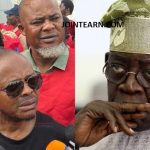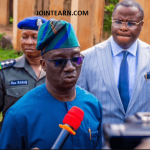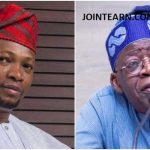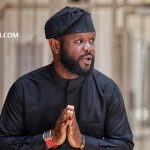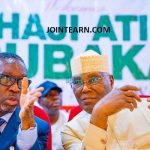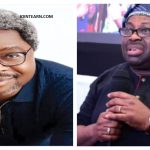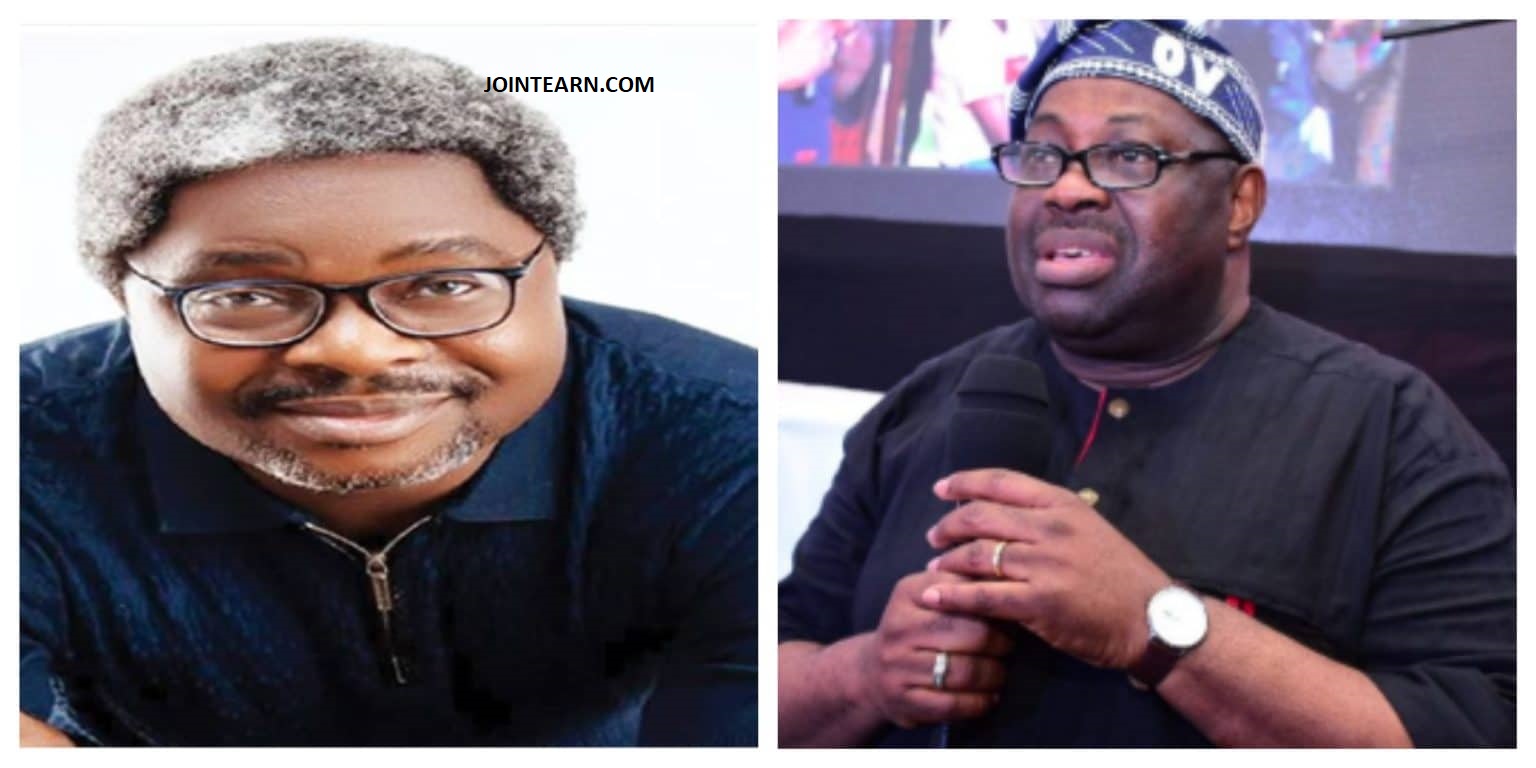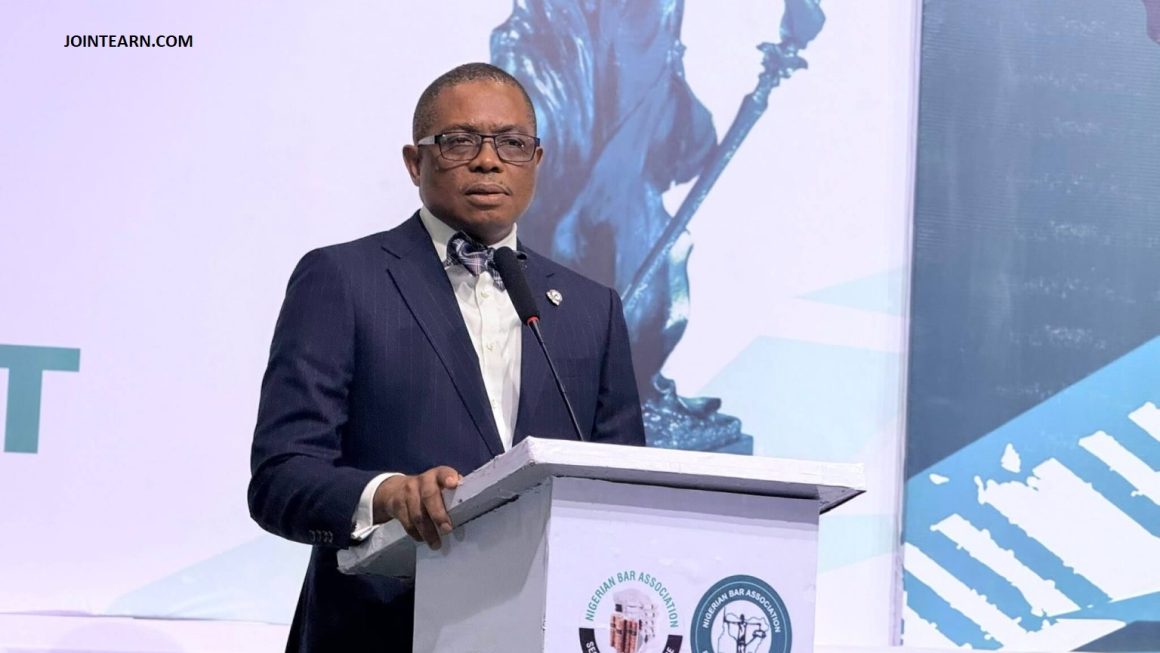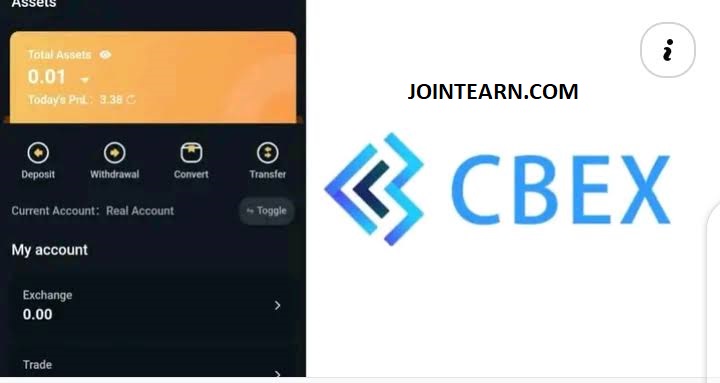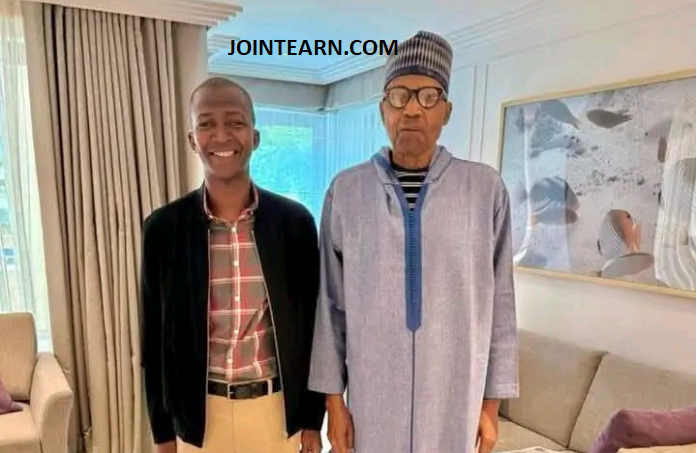A fresh controversy has erupted in Nigeria’s political space following allegations made by Tony Okocha, a close aide to Minister of the Federal Capital Territory (FCT), Nyesom Wike. Okocha accused veteran journalist and media mogul, Chief Dele Momodu, of collecting over ₦500 million from former Vice President Atiku Abubakar during the 2023 presidential campaign, in his role as the campaign’s spokesperson.
The revelation, made during a press conference in Port Harcourt, Rivers State, has generated intense reactions across political and media circles, with many Nigerians calling for transparency and accountability in the political processes that shaped the last general elections. Okocha’s claims are being interpreted by observers as part of a broader political power play, especially amid rising tensions between rival factions within the opposition People’s Democratic Party (PDP).
The Allegation
Tony Okocha, who now serves as the Chairman of the Rivers State All Progressives Congress (APC) Caretaker Committee, addressed journalists on Tuesday, accusing Dele Momodu of hypocrisy and financial complicity. According to him, Momodu’s recent criticism of the current administration is both disingenuous and opportunistic, given the significant amount of money he allegedly received from Atiku Abubakar, the PDP presidential candidate, during the 2023 election campaign.
“Dele Momodu has no moral standing to speak against the government today,” Okocha said. “This is a man who collected over ₦500 million from Atiku Abubakar to serve as a campaign spokesperson. The same man is now acting like a saint, throwing stones as if he wasn’t deeply embedded in the failed PDP campaign machinery.”
Okocha did not present documentary evidence to support his allegations, but he insisted that the information was credible and sourced from individuals with inside knowledge of the PDP campaign operations. He also suggested that Dele Momodu’s loyalty is guided by financial interests rather than principles or patriotism.
Dele Momodu Responds
As of the time of filing this report, Dele Momodu has not issued an official statement in response to the allegations. However, sources close to the Ovation Media Group founder say he is likely to address the matter publicly in the coming days.
Known for his articulate and often fiery public commentaries, Momodu was an outspoken advocate for Atiku Abubakar during the 2023 election campaign. He leveraged his media platforms and influence to promote Atiku’s candidacy, urging Nigerians to support the former Vice President as a more competent and democratic alternative to the ruling APC.
Momodu, a former presidential aspirant himself under the PDP, has long been known as a politically connected figure who frequently crosses between journalism and partisan politics. While he has faced criticism in the past for this dual role, his supporters argue that he has always maintained a consistent vision for democratic governance in Nigeria.
Political Undercurrents
Observers believe that Okocha’s latest attack on Momodu is not isolated but is instead reflective of deeper political dynamics at play, especially between the camps of Atiku Abubakar and Nyesom Wike. The fallout between the two PDP heavyweights after the party’s 2023 presidential primaries has continued to fuel rivalries within the party.
Nyesom Wike, who was a key PDP figure before accepting a ministerial appointment under the APC-led administration of President Bola Tinubu, has remained vocal in criticizing the PDP leadership and has often taken indirect swipes at Atiku and his supporters. Many believe Okocha’s statements mirror Wike’s sentiments and are part of a broader campaign to undermine the credibility of those still loyal to Atiku.
“This is a continuation of the internal warfare that has plagued the PDP since the primaries,” a political analyst in Abuja commented. “Okocha’s accusations are as much an attack on Dele Momodu as they are on Atiku and the remnants of his presidential campaign structure.”
Call for Accountability
The accusation has reignited debates about campaign financing in Nigeria, where transparency is often lacking, and political actors rarely disclose how much they spend or receive during elections. While there is nothing illegal about a campaign spokesperson being paid for their services, the figure of ₦500 million has shocked many Nigerians and prompted calls for Dele Momodu and Atiku Abubakar to clarify the financial arrangements of the campaign.
Some critics argue that the current political climate in Nigeria is being polluted by unverified claims and counterclaims designed more to score political points than to genuinely inform the public. However, others believe that public figures who assume roles in political campaigns should be subject to financial scrutiny, especially when they later seek to position themselves as independent voices of accountability.
A Divided Opposition
The allegation has once again exposed the divisions within Nigeria’s main opposition party, the PDP. The party has struggled to present a united front since its defeat in the 2023 elections, with various factions blaming one another for the loss. The Wike-led faction, which became increasingly distant from the national PDP leadership, has been particularly critical of Atiku’s campaign strategies and political decisions.
This latest development is likely to deepen the distrust and rivalry within the party and could potentially affect its ability to regroup ahead of the 2027 general elections.
What Comes Next?
While many await a formal response from Dele Momodu and perhaps a clarification from Atiku Abubakar’s media office, the public discourse around campaign finance, political loyalty, and media influence continues to grow.
Analysts are watching closely to see whether this revelation will lead to further disclosures about how campaign funds were distributed among top aides and media figures during the 2023 election season. If substantiated, Okocha’s allegations could have lasting implications for Dele Momodu’s public image and credibility as a political commentator.
For now, Nigerians remain divided—some calling for an investigation into the financial dealings of political campaigns, and others dismissing the matter as yet another case of intra-party mudslinging. Whatever the truth may be, it is clear that the aftershocks of the 2023 elections are far from over, and new chapters in Nigeria’s political drama are still unfolding.
